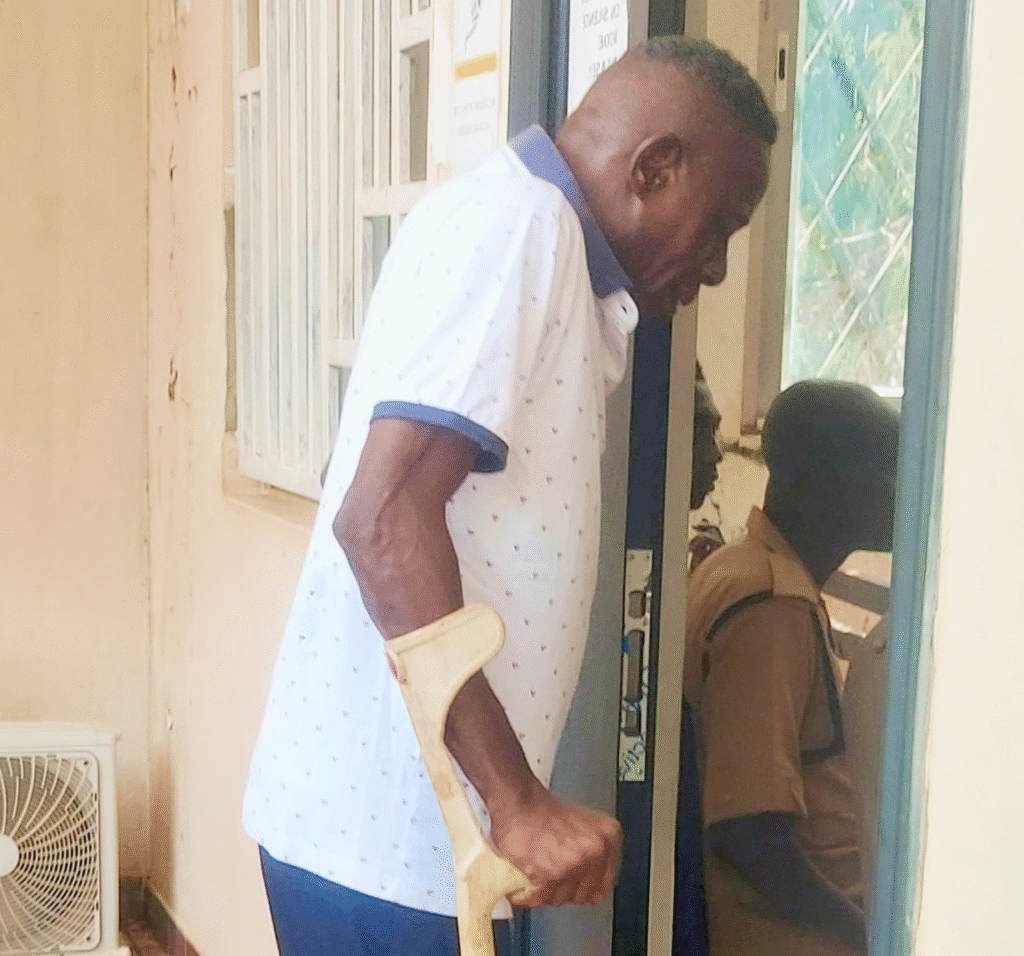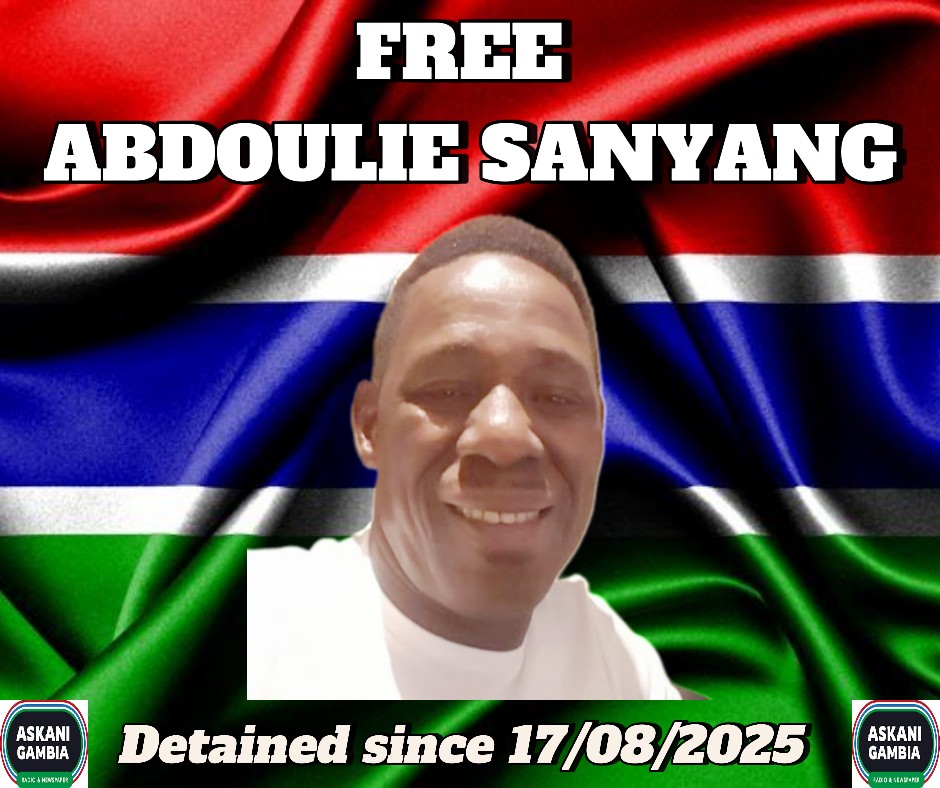
The High Court presided over by Justice Ebrima Jaiteh, today dismissed the bail application of former soldier Abdoulie Sanyang, who is facing charges of arson and judicial interference.
Justice Jaiteh ruled that Abdoulie Sanyang’s medical condition, as per the doctor’s report, failed to meet the high statutory threshold for bail on medical grounds as required by the Criminal Procedure Act, 2025.
Abdoulie Sanyang, represented by Counsel Lamin J. Darbo, sought unconditional release or bail to receive specialised medical treatment abroad, citing the deterioration of his severe spinal, rectal, and psychiatric conditions while detained at Mile II Central Prisons.
However, Justice Jaiteh’s ruling hinged on a strict interpretation and application of Section 125(1) and (2)(a) of the Criminal Procedure Act, 2025, which sets three cumulative conditions for granting bail in serious, non-bailable offences like arson:
The applicant must suffer from an illness or medical condition, the illness must be confirmed and certified by a qualified medical practitioner from a government hospital and the certification must expressly state that there are no medical facilities available to adequately treat the illness within the institution of detention.
Justice Jaiteh found that while Abdoulie Sanyang suffers from genuine ailments, including a post-surgical spinal disorder, rectal bleeding, and a mood disorder with depression, the medical evidence presented to the court did not satisfy the third condition.
The evidence came from the Chief Medical Director of the Edward Francis Small Teaching Hospital (EFSTH), Dr Mustapha Bittaye, who appeared before the Court following an order.
Dr Bittaye testified that Abdoulie Sanyang’s multiple conditions are clinically stable, not life-threatening, and can be adequately managed in the country with appropriate medical supervision, as all necessary facilities and treatments are available at EFSTH.
On the spinal condition, it stated that a follow-up procedure initially suggested for abroad could, upon clarification, be performed at EFSTH, while on the gastrointestinal, his condition is manageable as an outpatient, and necessary procedures like colonoscopies and endoscopies are available at EFSTH. Although the psychiatric evaluation recommended bail for continued follow-up to prevent deterioration, it also confirmed Abdoulie Sanyang is fit to stand trial.
Dr Bittaye’s testimony did not certify the statutory requirement that adequate treatment is unavailable within the Mile Two prison detention facility or in the country.
Counsel Lamin J. Darbo argued that Abdoulie Sanyang’s (Applicant) visible reliance on crutches and inability to walk unaided demonstrated the practical inadequacy of the prison and medical systems, despite the theoretical availability of treatment.
Counsel J. Darboe stressed that the psychiatric recommendation for bail and the constitutional presumption of innocence should prevail.
State Counsel S. L. Jobarteh successfully countered, submitting that the EFSTH reports confirmed the conditions are chronic, stable, and treatable in the country, thus not meeting the “exceptional circumstances” threshold for bail.
Counsel Jobarteh argued that the psychiatric staff’s recommendation for bail overstepped their medical remit, as the final decision rests with the Court.
Justice Jaiteh, in his ruling, sided with the state (respondent), concluding that while the applicant’s arguments carried a “persuasive humanitarian appeal,” the law “demands medical certification of lack of facility, not subjective observation of deterioration or institutional inefficiency”.
“The bail application is therefore dismissed, and the substantive criminal trial is to proceed,” Justice Jaiteh ruled.

